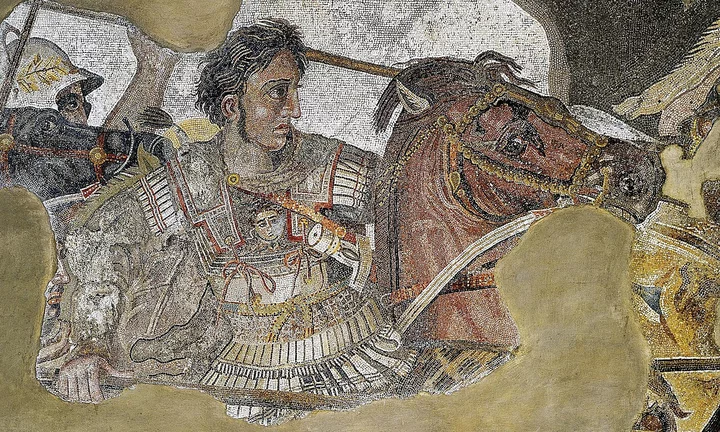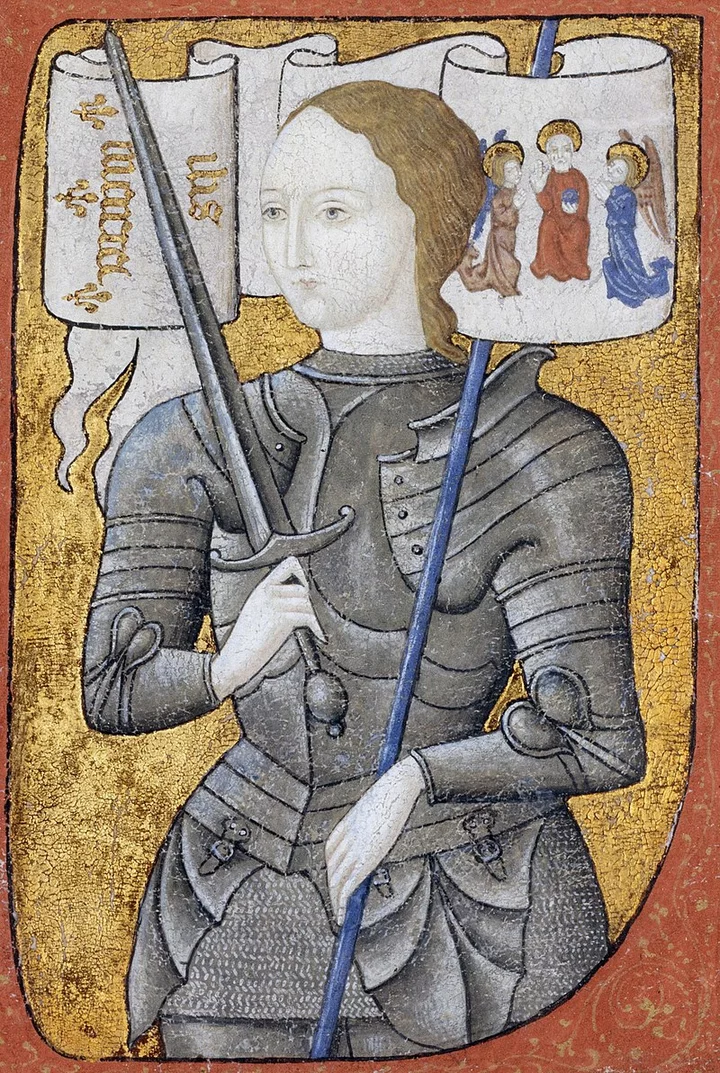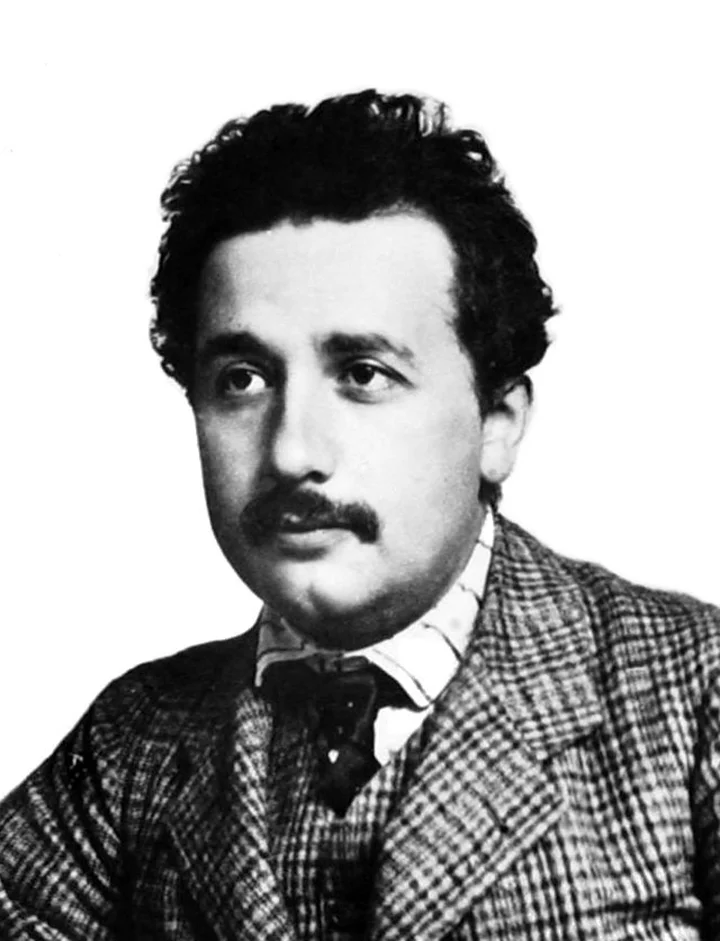“Age is, of course,
a fever chill/that every physicist must fear.
He’s better dead
than living still/when once he’s past his thirtieth year.”
— Paul Dirac, 1933 Nobel Laureate in Physics
Not just physicists, either. F’rinstance:
Alexander the Great had conquered most of the known world of his time by the time he was 30. (He died in Babylon on his way home to Macedonia, age 32.)
Mosiac of Alexander from the House of the Faun in Pompeii, dated to about 100 BC. (Public domain)
Noam Chomsky revolutionized the field of linguistics at age 26, introducing his radical theory about language acquisition (we’re all born with a “language organ” already in place, as much of a baby’s body as their heart or lungs). I wrote about his ongoing feud with (my hero!) Daniel Everett here.
Joan of Arc, a peasant girl, successfully led the French army against the English at age 19.
Joan of Arc, French National Archives (Public domain)
Joan’s compatriot, Napoleon Bonaparte, had beaten Russia, Austria and Turkey, i.e. the Ottoman Empire, before he turned 30. (* Sorta: he was Corsican, the island having recently been annexed by France from Italy, so he was really Italian.)
The Scotsman William Wallace won the Battle of Stirling Bridge against the English when he was 27.
Albert Einstein was 26 in his “miracle year,” 1905, when three papers of his—including Special Relativity—changed physics, and the world, forever. (He famously said, “A person who has not made his great contribution to science before the age of 30 will never do so.”)
Einstein at age 25. (Lucien Chavan, public domain)
Joseph Smith published the Book of Mormon when he was 25.
Charles Darwin returned from his five-year voyage on the Beagle at age 27, having figured out evolution by natural selection. (It took him another 23 years to have the courage to make his “It wasn’t God” views public in The Origin of Species.)
Clyde Tombaugh was 24 when he discovered Pluto.
Margaret Mead published Coming of Age in Samoa when she was 28. The controversy over it continues today.
Isaac Newton had figured out calculus by age 24. Gottfried Leibniz by 29. (Neither published their discoveries at the time, leading to a bitter feud that, according to some jingoistic writers, still rages.) (Archimedes beat them both by 2,000 years. We don’t know how old he was when he nailed down the method of infinitesimals.)
Sara Bareilles was 28 when her Love Song was No. 1 on iTunes “most downloaded albums” in its first week of release in 2007.
Bareilles on October 16, 2022 (Barry Evans)
And then there’s Mozart…
And of course, never trust anyone over 30.




CLICK TO MANAGE